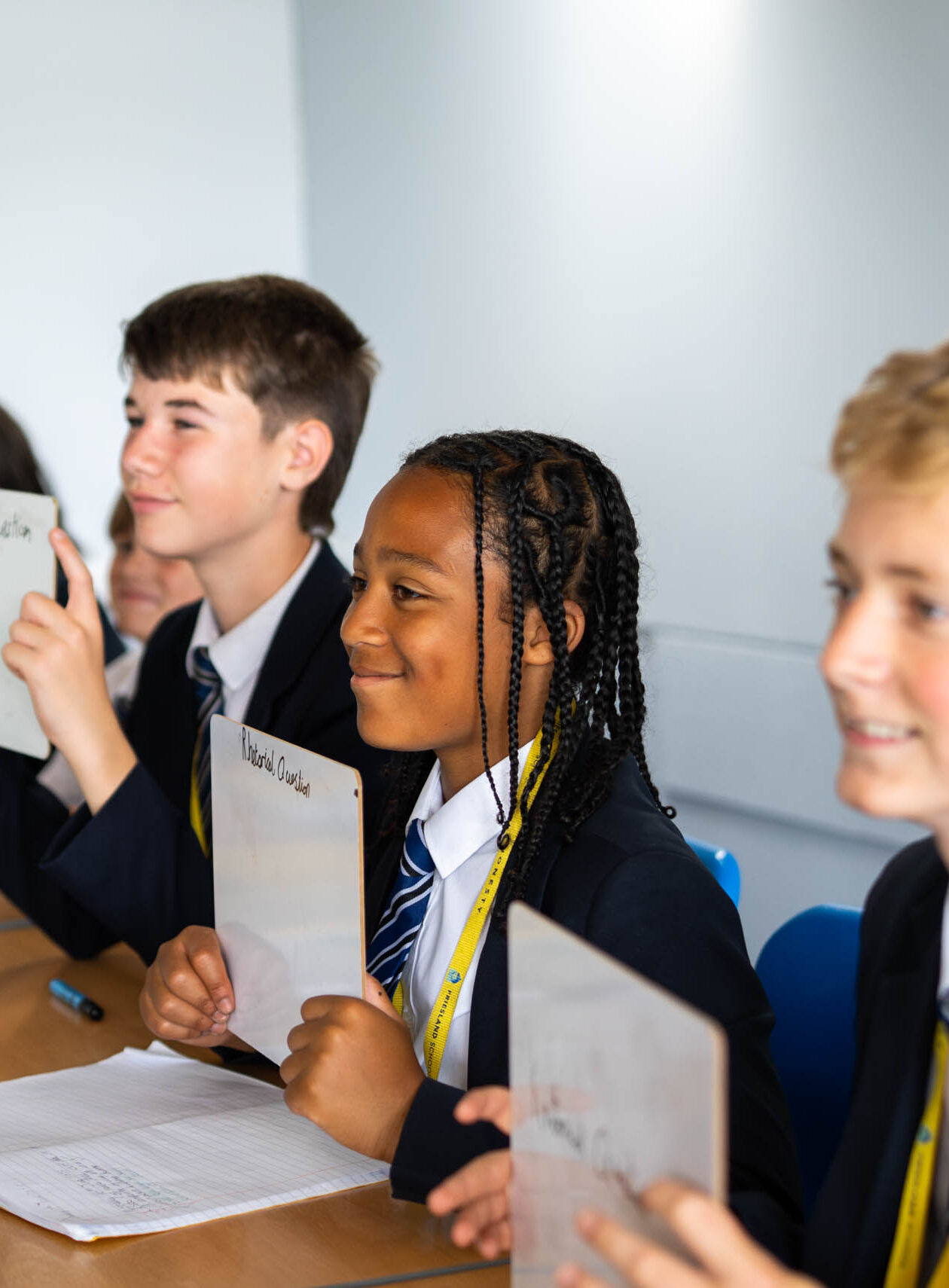Curriculum Intent
Business & Enterprise play a major role in the UK’s global economic status. The role of entrepreneurs helps to create wealth for our nation and citizens through the creation of enterprises that innovate and grow the economy. There are nearly 5 million such businesses in the UK, employing around 14.4 million people. The Business curriculum at Friesland is designed to enable students of all abilities to succeed, to develop their entrepreneurial skills and gain a broad understanding of business in the real world. By offering both vocational and academic courses students are able to learn key business concepts through a range of different teaching and learning methods. Students will consider the practical application of business concepts. They will have opportunities to explore theories and concepts in the most relevant way, through the context of events in the business and economic world.
By the end of their education, a student of Business at Friesland School will:
- Develop problem solving and decision-making skills relevant to business
- Investigate, analyse and evaluate business opportunities and issues
- Be able to make justified decisions based on analysis and evaluation of different business contexts
Process
Powerful knowledge
- How local, national and International contexts impact business and consumer behaviour
- Entrepreneurship and the impact of business on society and living standards
- The interdependent nature of business
The Business curriculum will support and scaffold all students to be successful:
- Teaching from the top down, with courses tailored to meet students’ specific needs
- Regular formative and summative assessments to track progress and inform of areas for development
The Business curriculum contributes to the personal development of students at Friesland School:
- Awareness of the Global community we live in and how products and services are tailored to meet differing cultures and beliefs
- Awareness of the impact of Entrepreneurship on society in terms of job creation, innovation and raising living standards
- The study and development of key business skills such as communication, presentation and meeting tight deadlines
- Development of quantitative skills which underpin the subject and are transferable to other subjects
Opportunities are built in to make links to the world of work to enhance the careers, advice and guidance that students are exposed to:
- Students in Yr. 10 and Yr. 12 undertake work experience, where they will see the curriculum brought to life
- The case studies used for GCSE and A level, and the contexts in the vocational course components, show how the subject links to the world of work and real-world situations
Key Stage 4
We offer students 2 courses at KS4 to cater for the diverse needs of our community:
AQA GCSE Business provides the traditional GCSE study route, where students are assessed at the end of Yr. 11 with 2 terminal examinations. Each paper has a different focus and both will assess students’ quantitative skills, coupled with analytical & evaluative ability.
BTEC (Tech) Travel & Tourism is a vocational course which comprises of 2 internally assessed components and 1 externally assessed component.
For the vocational course, students are continuously assessed via their coursework tasks and practice exam questions.
Key Stage 5
At Key Stage 5 all students study AQA A level Business. By taking a holistic approach to the subject, students are able to demonstrate the interrelated nature of business using business models, theories and techniques to support analysis of contemporary business issues and situations to provide a dynamic specification. The course content is designed to engage students through topics and issues that are relevant in today’s society – they study key contemporary developments such as digital technology, business ethics, and globalisation.
Year Plans (2025-2026)


